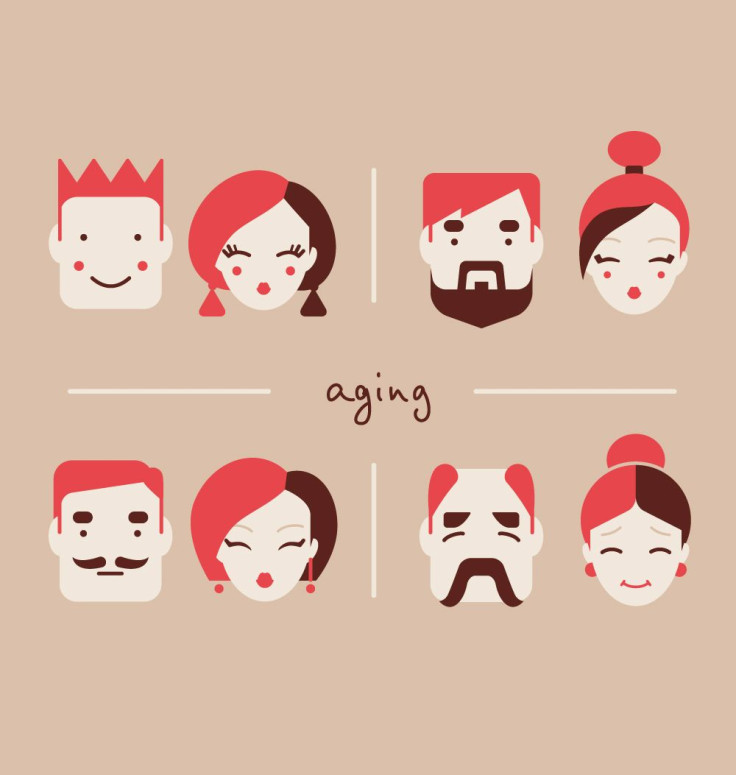Aging Differences Between Men And Women: How The Sexes Grow Old Together (And Apart)

There’s an old adage: Men age like a fine wine, while women age like a glass of milk. Jokes come in endless supply when it comes to aging and the inevitability of earning senior citizenship. There are so many people denied the choice to live into a ripened old age because they’ve been plagued by disease, dealt an undesirable hand of deadly fate, or freak accident. Aging should be coveted, with lines of pride drawn into the skin leaving behind wrinkled scars.
It is nearly impossible to imagine life without timekeeping. While some children and teens would gladly trade in their playtime and curfews for adulthood, their desires for future comfort is the greatest thief of life. Aging differs between men and women, through mind, body, and their emotional capacity. The aging pattern for each gender greatly depends on the society an individual was raised in and their personal smoking, alcohol abuse, infectious disease, nutrition, poverty, access to education, work conditions, violence, and health care, according to the World Health Organization.
Puberty may be one of the most pivotal points in a young adult’s life. Girls begin down their road to fertility and into the physical stages of puberty between the ages of 10 to 14, while boys experience puberty later, between 12 to 16 years old. The chemical hormones circulating throughout each pubescent body causes difference in voices, height, weight, acne, and curves and muscle development.
Men typically grow into sex driven creatures. Up until the age of 60, adult men think about sex at least once a day, according to WebMD. Women fantasize about sex too, but as men and women grow older they think about sex less and less. But no matter how old the genders age, an average man will fantasize about sex twice as often as a woman. Evolutionary biologists believe a woman has a self-protective strategy built into her instincts in order to keep her from becoming pregnant with an unfit mate. Just because a woman’s sex drive isn’t as relentless as a man’s doesn’t mean they like desire, it just means they’re designed for quality and not quantity.
Once women hit 40 years old, they also become more conscientious of their appearance, which stifles the mood. In fact, out of 1,100 adults over the age of 40 were polled, 33 percent of women were concerned for the sagging, wrinkling, and weight changes that were occurring in their older age. It's the reason why so many women turn to plastic surgery, tummy tucks, and Botox injections for a solution to their aging appearances. Meanwhile, only 21 percent of men were concerned with how their aging bodies appeared to the rest of the world.
One of the most accurate representations of the aging faces of males and females was captured through Edouard Janssens’ camera lens. In 2012, Belgian photographer Janssens finished his project “1 to 100 Years” which gives a black and white visualization of men and women from the time they’re one up until their one-hundredth year of life.
Health And Happiness Halfway Through:
After 50, men and women begin to go down separate roads in terms of happiness. When aging adults face the inevitability of the ticking clock, men show a lower compliance to cope with new changes than women. In fact, it is after 50 years old that a woman’s rate of depression, anxiety, and suicide drop as they grow older. Along with their older age comes a highly developed set of coping skills, empathy, ability to listen, patients, and courage to pursue new endeavors.
"Women's full complement of strengths give them the mindset to celebrate older age as a time of joy, love, and fulfillment for all they have worked for and grown to be over their lifetimes." Dr. Susan Nolen-Hoeksema, a noted Yale professor of psychology, said in Psychology Today. “Old age is not just about surviving, it's about flourishing. There is increasing evidence that most women feel a greater sense of fulfillment, self-actualization, reaching their peak- whatever you want to call it-as they grow older.”
Men and women can both make it past the 100 year mark, however women are more likely to cross the line than men are. In the United States, women live to an average age of 81 years, while men only make it to 76, according to the Institute of Health Metrics and Evaluation. When it comes to the quality of life between the centenarians, men draw a better stick. Of those 100 years and older, 32 percent of men don’t suffer from any major health conditions, while only 15 percent of women survive a healthy 100 birthdays or more.



























